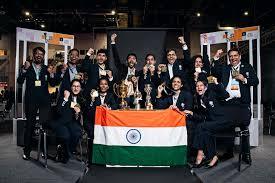

By Linus Garg
First publised on 2021-03-18 08:26:38
The Gujarat assembly Speaker was constrained to ask Congress MLA Vimal Chudasama to leave the house after several members did not take kindly to his wearing a T-shirt in the house. These members felt that Chudasama was "inappropriately" and "casually" dressed and it "lowered the prestige" of the august house. The Congress party argued that since a dress code was not prescribed, members were within their rights to wear any good clothes. Chudasdma, on his part, pointed out that if he had won elections while campaigning in T-shirts and if the people had accepted him in that attire, why couldn't he be allowed in the house wearing the same.
While it is true that a person must be presentable when he is attending official business and the way one dresses makes a huge impression, it is also true that old (and in India's case, colonial) notions about dressing for the occasion or the place have undergone a sea change in the last few decades. Gen X and the Millennials have long discarded the set notions about "power dressing" and new age startups have for long allowed their workers to wear almost whatever they like to office. Power dressing now remains only in corporate boardrooms that refuse to change with time. The credo now is that a person should wear to work the dress he or she is most comfortable in. After the pandemic-induced lockdown and work-from-home scenario, this is likely to be further relaxed.
India has for long followed old colonial rules in dressing that do not make sense in a hot and humid country. Why should judges in higher courts wear robes? Formal dressing needs to be redefined and this must also take into account the cultural ethos of the country. Why shouldn't a director wear a desi kurta-pyjama-jacket to a board meeting? Why it always has to be a suit with a necktie? Why can't MLA Vimal Chudasama wear a T-shirt in the assembly? As Indian society becomes more open and accommodative in all spheres, answers to these dress codes also need to be found.











